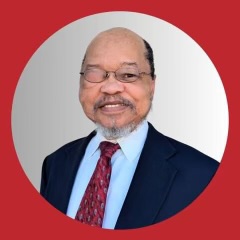
Q: Why are you running for the school board?
A: Because, I’m running because I am a longtime LISD parent and volunteer and I’ve been very, very active with the school district for 17 years. And in recent years there have been some items with curriculum that I don’t agree with and I’ve gone to the school board meetings to express my concerns and have been pretty much rejected. So as the last resort, I opted to run for school board to go inside and represent those concerns by me and other parents.
Q: What past experience makes you qualified to be a school board member?
A: Well, I am a retired military. I spent 20 years in the Air Force and got a lot of experience with leadership and just world affairs and during that time I also went to school to get three college degrees, including an associate’s in computer science, a bachelor’s in computer science and MBA, which is a master’s of business administration. So lots of financial skills, computer software skills, and general leadership skills.
Q: So how do you think your experience in both the United States Air Force and as a volunteer help you?
A: One thing that was very, very important, especially with leadership, was dealing with people and dealing with differences and how to manage teamwork effort when you got people on your team that have different views, different ideas. And that’s basically what we got here is a conflict between the ideas that I and other parents think are appropriate for our children and that which the district leadership is thinking right now.
Q: Are you satisfied with Dr. Gearing’s job as superintendent? Why or why not?
A: Well, that’s a pretty tricky question because I’m here running because I don’t agree with what leadership is doing. So I will state this, as a person, I highly respect Dr. Gearing and I respect and admire his qualifications, but this is just an item of disagreement on certain ideas.
Q: What do you believe is the biggest challenge facing students today?
A: I think the biggest challenge they face today is applying and our focus on academic excellence in exchange for focusing on other things that are kind of in the category of social-emotional things and it kinda gotten away from focusing on the basic ABCs and academics.
Q: Do you believe Leander ISD sufficiently addresses that challenge? If so, how? And if not, how should they?
A: I think they, again, have strayed away from that. And what I think we should do, what I would if elected is I encourage us to not focus so much on some of the worldly ideas and strategies and just focus more on basic academics, which is the thing that attracted me and many other parents to this district when we moved here.
Q: In your mind, what is the ideal takeaway you want for a Leander ISD graduate?
A: Excellent preparation for a future leader to go out and be leaders who are qualified to make an impact or a difference in our community, and in our country. And I would summarize that by saying a student who has been thoroughly prepared to know how to think, not what to think.
Q: So Leander ISD has a long-range planning committee that’s tasked with making recommendations regarding the changing size of the district, facilities, and innovation academies. What do you think are the biggest priorities that LISD should be considering in terms of this long-range planning?
A: I think the biggest challenges are accurately projecting our student or enrollment needs and then projecting the resources that we need in terms of human resources, teachers, faculty and staff and facilities, and equipment to meet those needs. And that’s a very important and challenging thing that I think also my experience in the military prepares me for because the military is very, very always actively involved in strategic planning, being prepared for whatever crisis or situation may appear.
Q: How do you believe Leander ISD should go about facility optimization regarding schools with low enrollment?
A: Again, very closely track the enrollment trends and be aware, be able to predict well, to be quite frank, some of the issues with enrollment have to do with I think the district leadership’s failure to really take seriously some of the complaints and concerns of parents like me who come and said, “we don’t agree with some of the things that you’re teaching our children” and when they or we, it won’t help. Many of them opted to take their kids out of the district.
Q: Texas has not increased student allotment since 2019 and many districts say that the state is not fully funding public education. What is your view and should anything be done to increase public school funding?
A: Well, school financing is a whole another very, very deep issue because it’s not just the state and federal government that provides those funds. A lot of the funds, and this again is one of those things about being sensitive to the concerns of parents. A lot of those funds that sustain the school district come from our tax dollars our property taxes and we are very, very keen and aware of that as well. So once again, in order to please the parents and the taxpayers, we’ve got to be mindful about the products or services that we provide to them. When I moved here in 2007, I was very, very happy we chose this area because of the reputation of the school district and there was never really concern about the amount of taxes that were being assessed on our property tax. But now with this conflict, it becomes very, okay, if you’re not going to at least listen to my concerns, don’t ask me for more tax money.
Q: During the summer it was announced that Leander ISD was facing roughly a 13 million deficit. What do you attribute that deficit and how do you believe it should be addressed?
A: I attribute that deficit a lot to unhappy customers. Unhappy customers in terms of parents and families. And the way that I would address it if elected on the board is that I would push a focus to whereas elected members and as senior hired people in the district a key, we pay close attention and a key focus to the concerns and the desires of our key customers, our parents.
Q: There has been growing polarization and rising attention among school boards across the country and we’ve even seen some of this tension in our own board. How do you see yourself working with board members you may disagree with?
A: That’s a great question, an excellent question. One that I’ve given a lot of thought to and because I see right now when I go to attend school board meetings, there’s still a high level of tension and animosity that’s in the atmosphere. And one of the things I would do, one of the first things that I would do, steps I would take is I would make sure that the people on the board who have different views than I do, I make sure they understand that I respect them as a person. I just don’t necessarily agree with their opinion and their position, but that does not mean that I have any kind of negative, you can disagree without being disagreeable. And my point that I would make would both the other board members as well as other parents who have different ideas, that’s what this country’s all about. We’re different and we can have differing ideas but still respect and honor each other as human beings and individuals.
Q: In the last two years, election integrity has become a hot topic in politics. Do you believe that there are problems with our election system locally or nationally?
A: I most definitely agree that there are problems. I think one of those citizens who have done research and looked into some of the issues and requested that some of the obvious things that are questionable, why is there such a hesitancy to even look at them to see if there are problems? Yes, I do but agree that there are problems as again, I mentioned my experience in the military and my degrees with computer science. I know how easily computer systems can be manipulated and the way our current election system is being run. It’s ripe for fraud and manipulation as opposed to a pure paper, manually counted system. Not to say that we necessarily have to go to a manual system, but if we stay with the current system, we’ve got to be open to more audits or checks and controls to make sure that there’s no data being manipulated in the systems.
Q: Would you accept the outcome of the election if you lose?
A: Well, it depends. If I lose, if I lose in a fairly administered election, I would definitely, but if I suspect that there are issues that need to be addressed, I’d make that known. And I would just like, in our presidential election back in 2020, I was one of those citizens that went and stood up and said, I think there are issues here that need to be addressed. Just because I think there are issues does not make me the bad guy. It makes me a concerned, responsible citizen.
Q: So you mentioned that your kids went through Leander High School. Are they still in school and if so, are you hoping a possible election on the board would help their experience?
A: Absolutely. Okay. I got a total of seven kids and of those seven, six of them have gone through Leander, all graduating, well, most of them graduating through Leander High School. I say most because I’ve got two that are remaining currently are attending Leander High School, and if elected on the board, I definitely would seek to make their experience better, but not just my own kids, everybody, all because as the elected official on the board, I’m there to represent the interest and the rights of all families.
Q: What would you say your favorite high school memory is?
A: My favorite high school memory is band. I played in my high school band, and that’s where I really got a chance to appreciate music, to read music, and to also understand the power of teamwork, how together this group we can make really, really beautiful exquisite sounds.
Q: Do you have anything else you want to add?
A: Just I guess as a final point for the election, I would state that if elected I vow to be someone who represents the US Constitution, which is guaranteeing that you each have rights and individual rights in our government is instituted to defend those rights and I would to fight for the rights of each and every person, even people who don’t agree. When that’s quite on those rights and freedoms, my freedoms, this directly impacts my concerns about the school curriculum. My freedoms are that I am given certain freedoms by our creator, God, and my freedoms allow me the ability to choose and live life the way that I want to, but my freedoms can never, ever impact on somebody else’s dreams. That’s what my concern is with what’s going on, with the issue of the curriculum. Everybody is entitled and free as parents to raise their children the way they want to, and I’ve got a certain way that I choose to raise my children as a Christian, and that’s my choice. That’s my freedom, but my freedom cannot ever impact on how someone else raises their kids. I can never force somebody else to be Christian, just because I am Christian. That in essence is the point of conflict that we have with the curriculum.

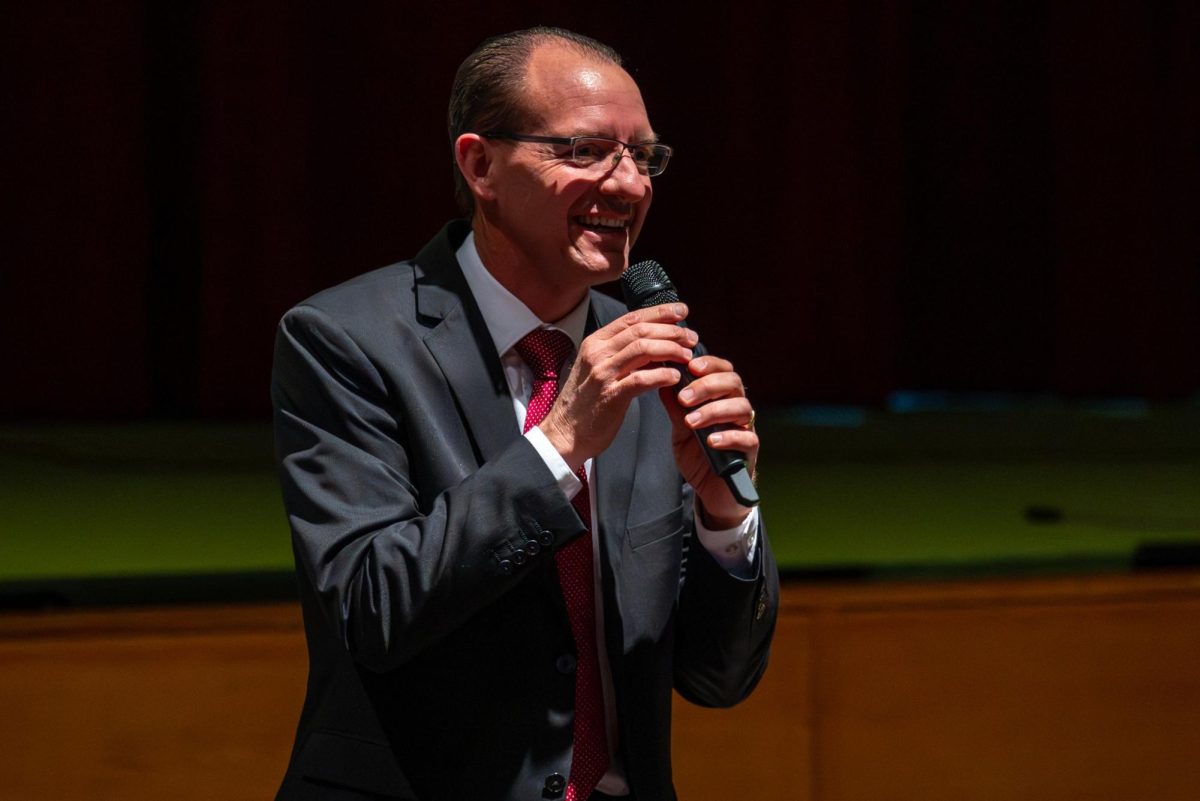
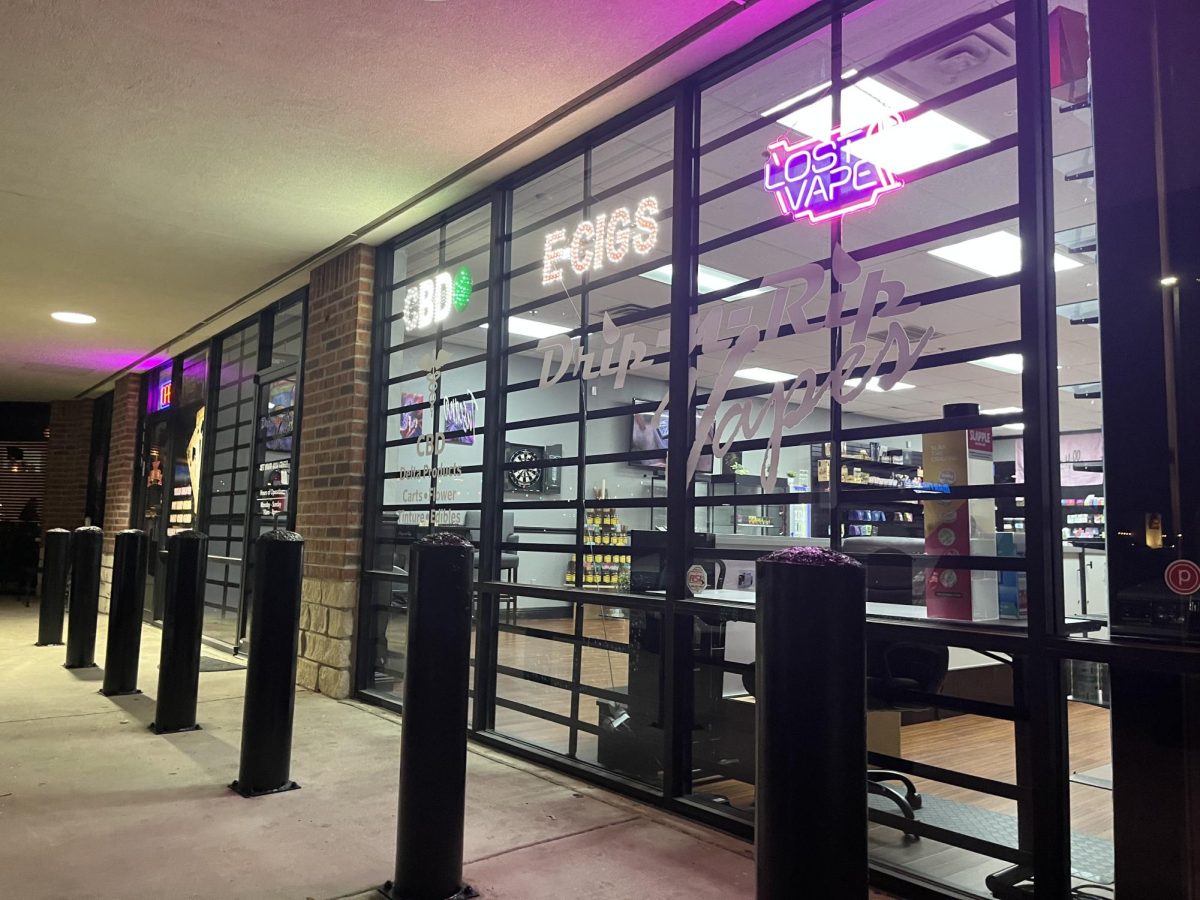
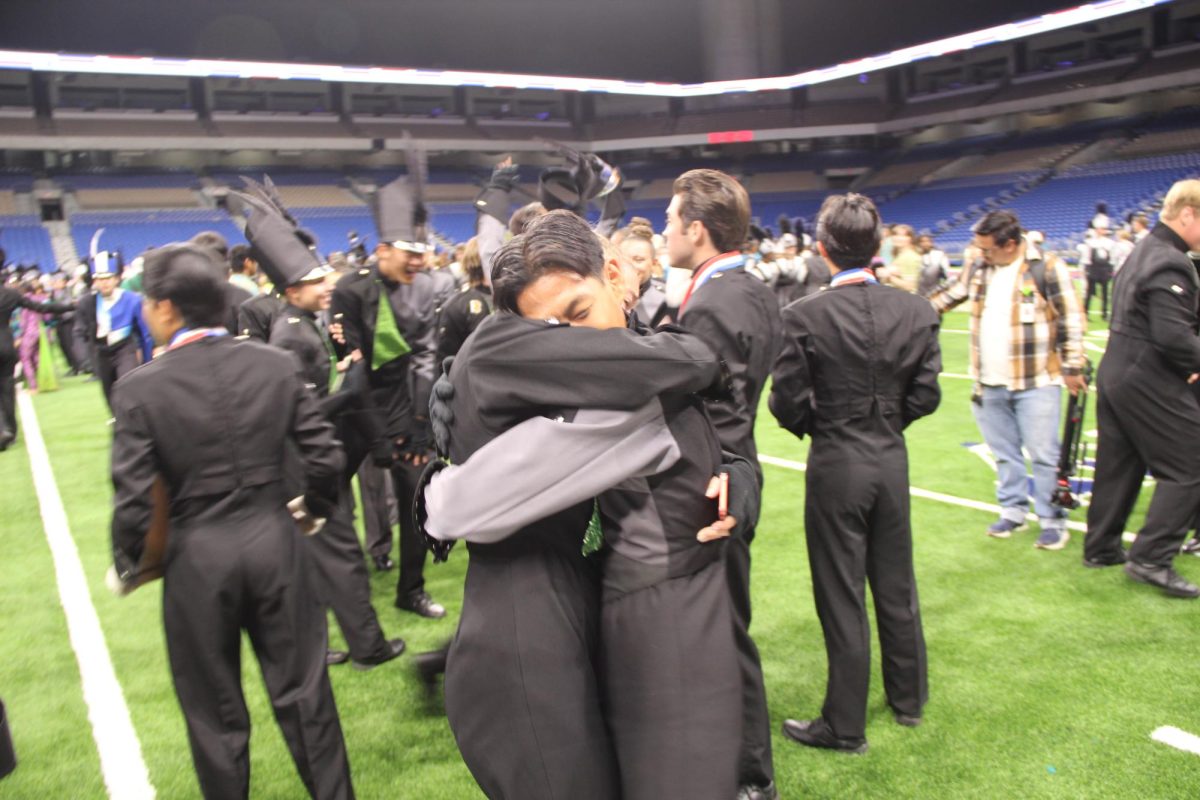
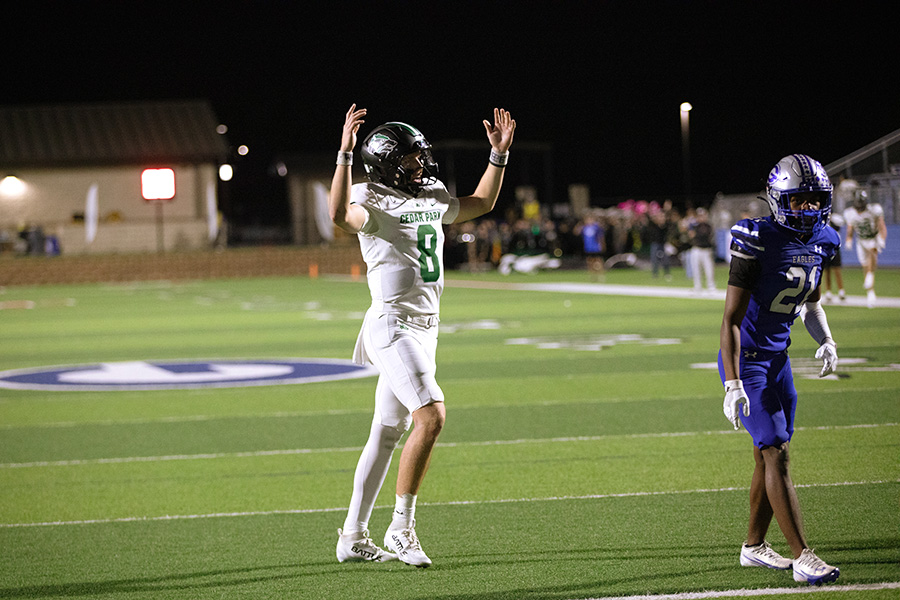

![Senior Jett Mckinney stores all the clothes in his own room, with half of it stored in his closet along with his personal clothes, and the rest taking up space in his room.
“There’s been times [when] there’s so much clothing stored here and it gets overwhelming, so I end up having to sleep somewhere else in the house,” Mckinney said.](https://cphswolfpack.com/wp-content/uploads/2025/11/DSC_0951-1200x800.jpg)



![Broadcast, yearbook and newspaper combined for 66 Interscholastic League Press Conference awards this year. Yearbook won 43, newspaper won 14 and broadcast took home nine. “I think [the ILPC awards] are a great way to give the kids some acknowledgement for all of their hard work,” newspaper and yearbook adviser Paige Hert said. “They typically spend the year covering everyone else’s big moments, so it’s really cool for them to be celebrated so many times and in so many different ways.”](https://cphswolfpack.com/wp-content/uploads/2025/05/edited-ILPC.jpg)




![Looking down at his racket, junior Hasun Nguyen hits the green tennis ball. Hasun has played tennis since he was 9 years old, and he is on the varsity team. "I feel like it’s not really appreciated in America as much, but [tennis] is a really competitive and mentally challenging sport,” Nguyen said. “I’m really level-headed and can keep my cool during a match, and that helps me play a bit better under pressure.” Photo by Kyra Cox](https://cphswolfpack.com/wp-content/uploads/2025/09/hasun.jpg)

![Bringing her arm over her head and taking a quick breath, junior Lauren Lucas swims the final laps of the 500 freestyle at the regionals swimming competition on date. Lucas broke the school’s 18-year-old record for the 500 freestyle at regionals and again at state with a time of 4:58.63. “I’d had my eye on that 500 record since my freshman year, so I was really excited to see if I could get it at regionals or districts,” Lucas said. “ State is always a really fun experience and medaling for the first time was really great. It was a very very tight race, [so] I was a bit surprised [that I medaled]. [There were] a lot of fast girls at the meet in general, [and] it was like a dogfight back and forth, back and forth.” Photo by Kaydence Wilkinson](https://cphswolfpack.com/wp-content/uploads/2025/03/Kaydence-2.7-23-edit-2.jpg)
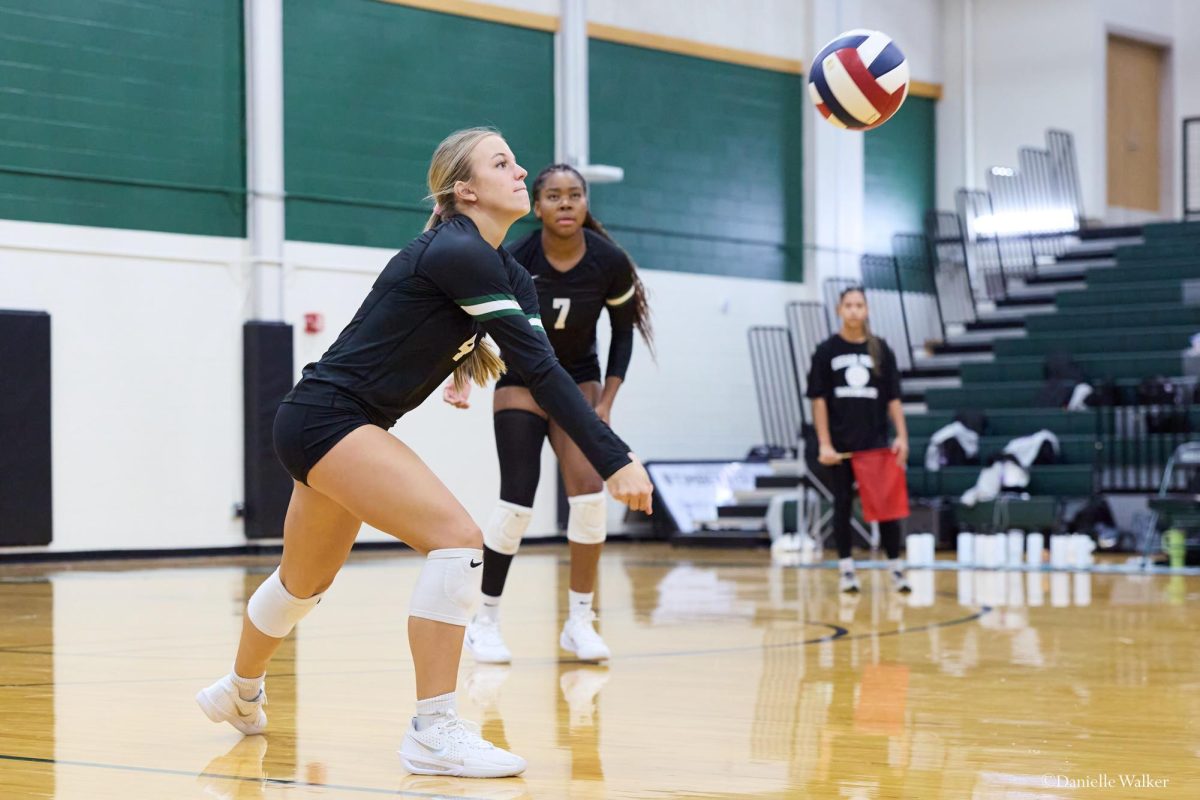

![As her hair blows in the wind, senior Brianna Grandow runs the varsity girls 5K at the cross country district meet last Thursday. Grandow finished fourth in the event and led the varsity girls to regionals with a third place placement as a team. “I’m very excited [to go to regionals],” Grandow said. “I’m excited to race in Corpus Christi, and we get to go to the beach, so that’s really awesome.” Photo by Addison Bruce](https://cphswolfpack.com/wp-content/uploads/2025/10/brianna.jpg)















